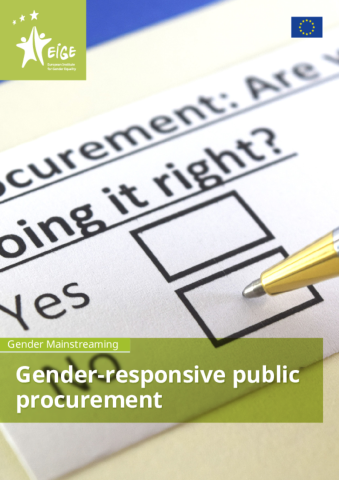Gender-responsive public procurement (GRPP) is a gender mainstreaming tool to promote gender equality through public procurement.
GRPP promotes gender equality through the goods, services or works being purchased. This means that buyers and suppliers examine the impact of all contracted activities on women’s and men’s needs, interests and concerns, and design and deliver contracts in a way that reduces inequalities. It does not necessarily entail higher costs, but does require knowledge and capacity. GRPP can improve efficiency in public spending.
This brief for gender equality experts and procurement practitioners explains what gender-responsive public procurement is, how it works and why it is important.
